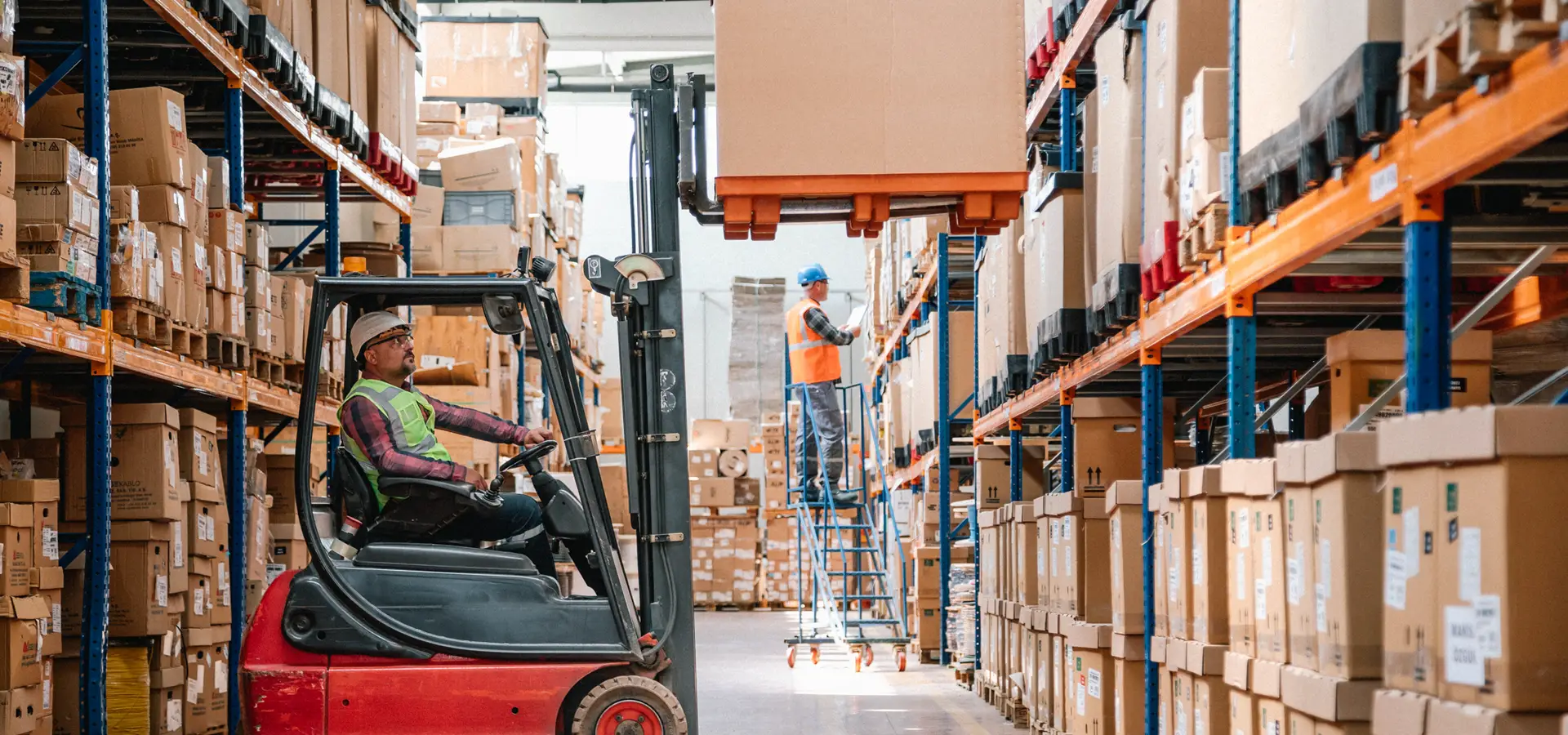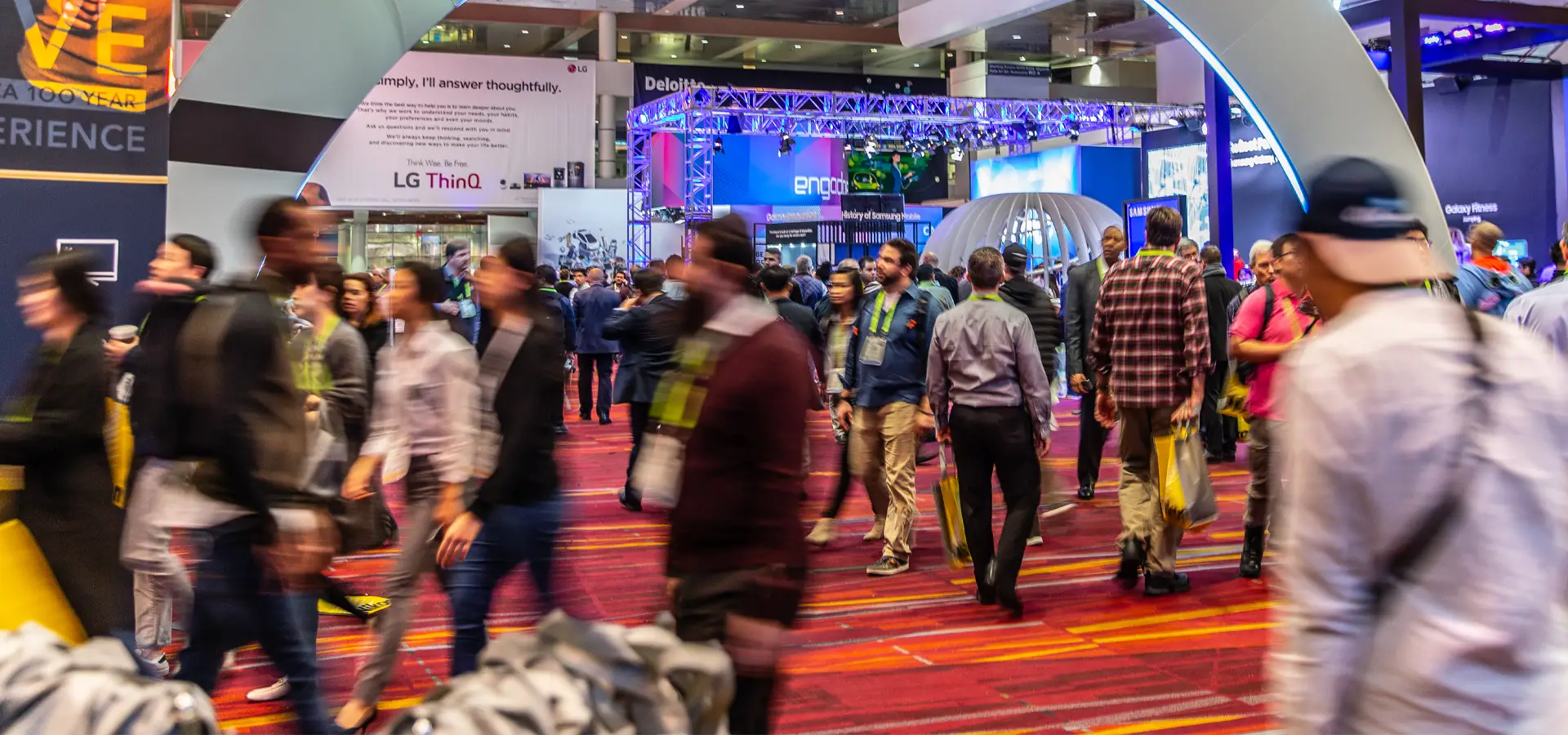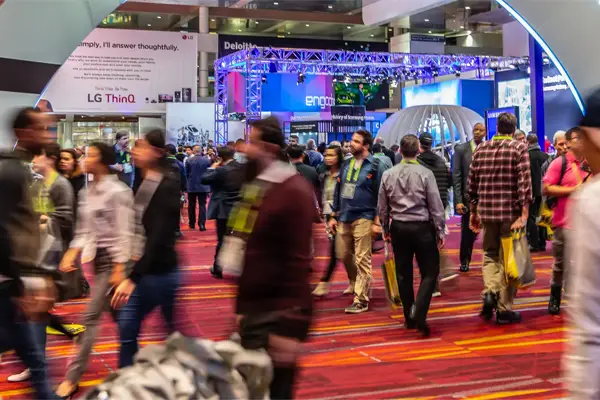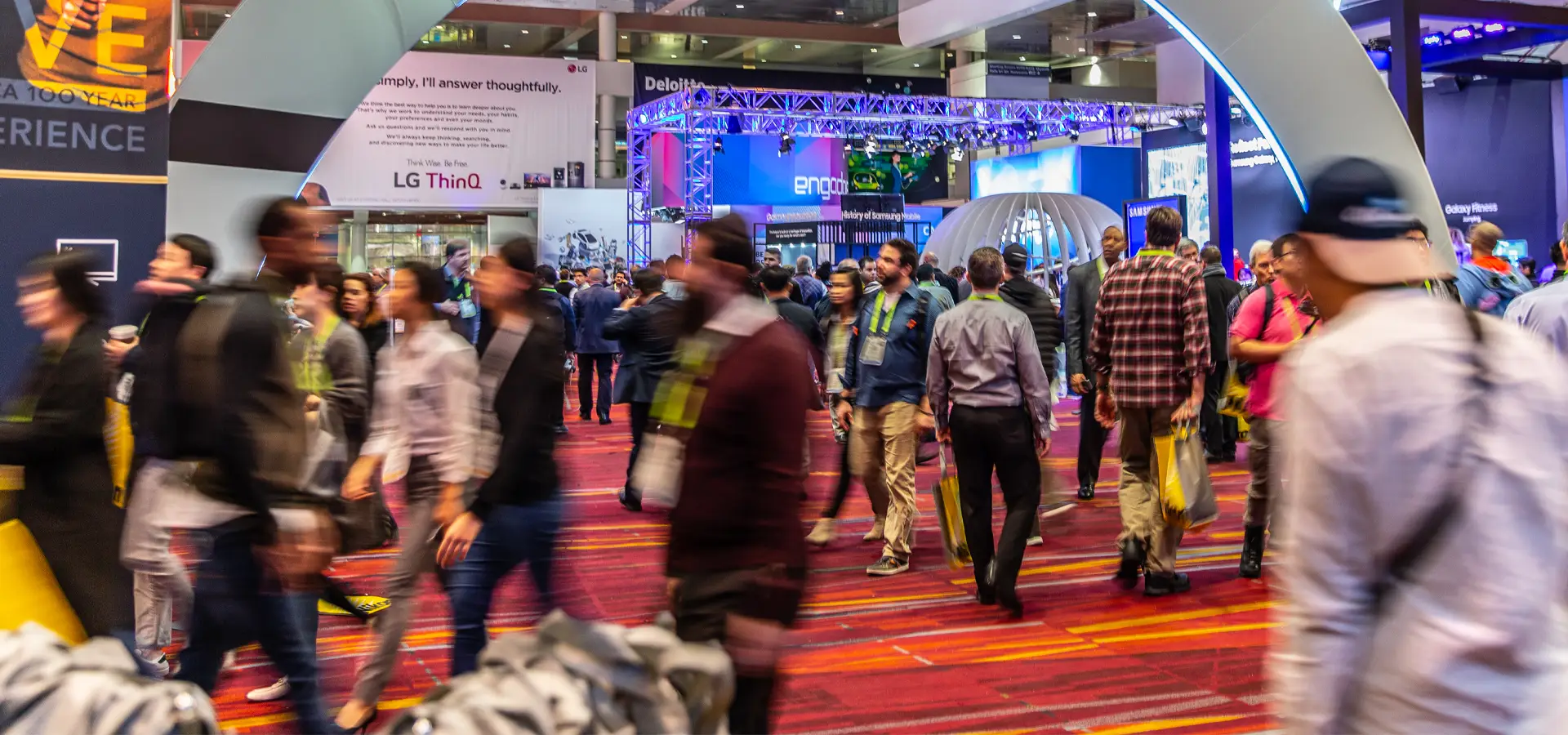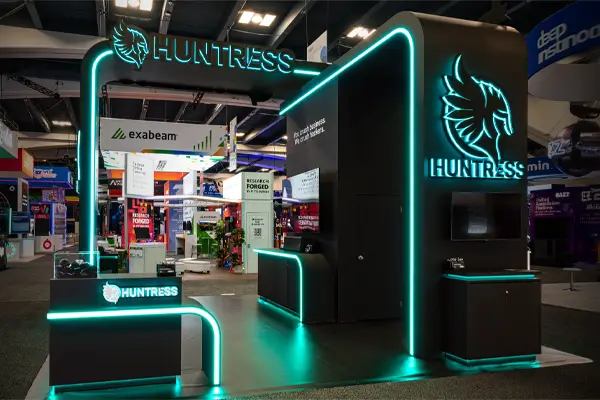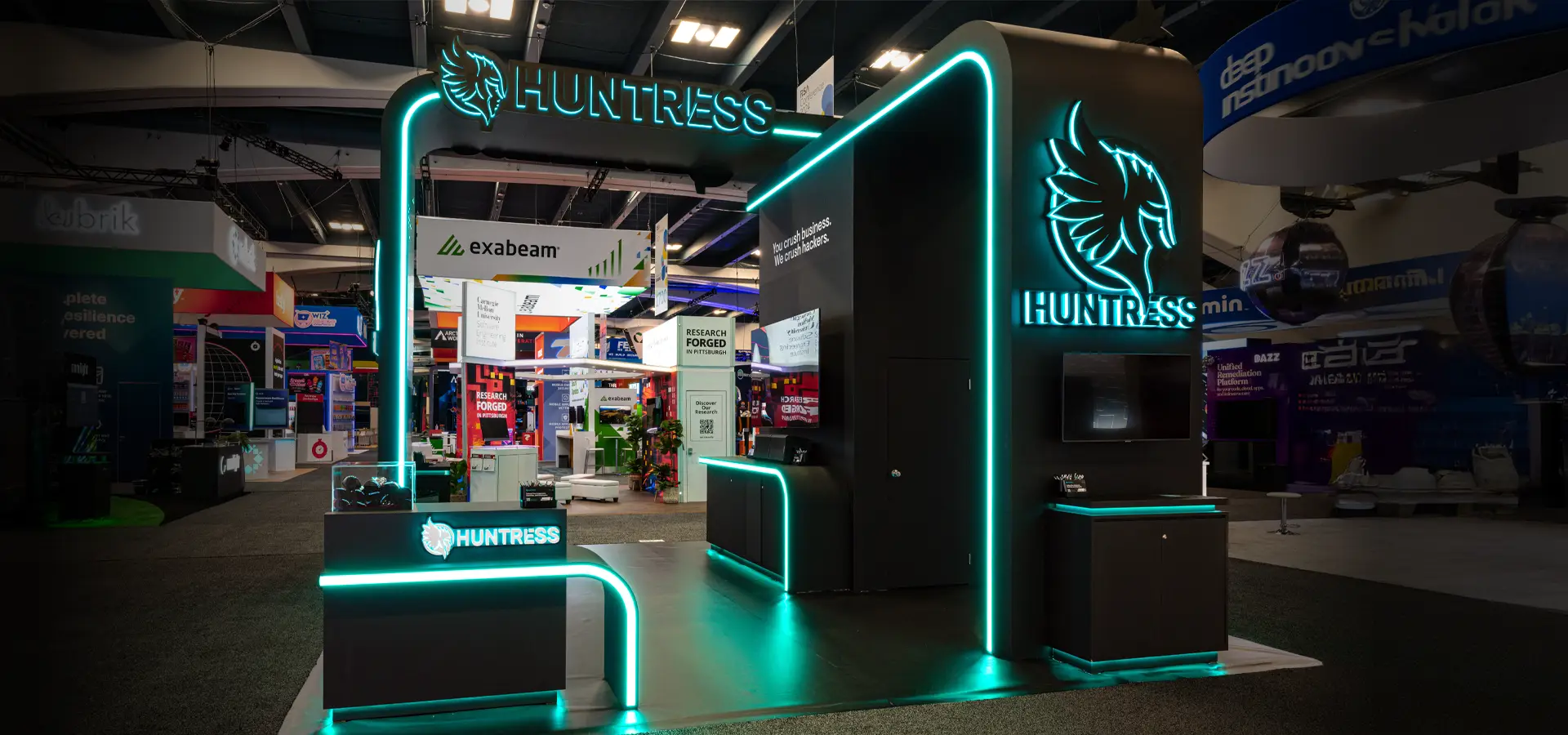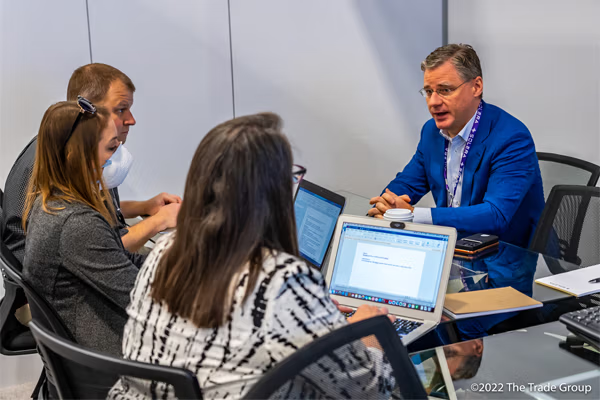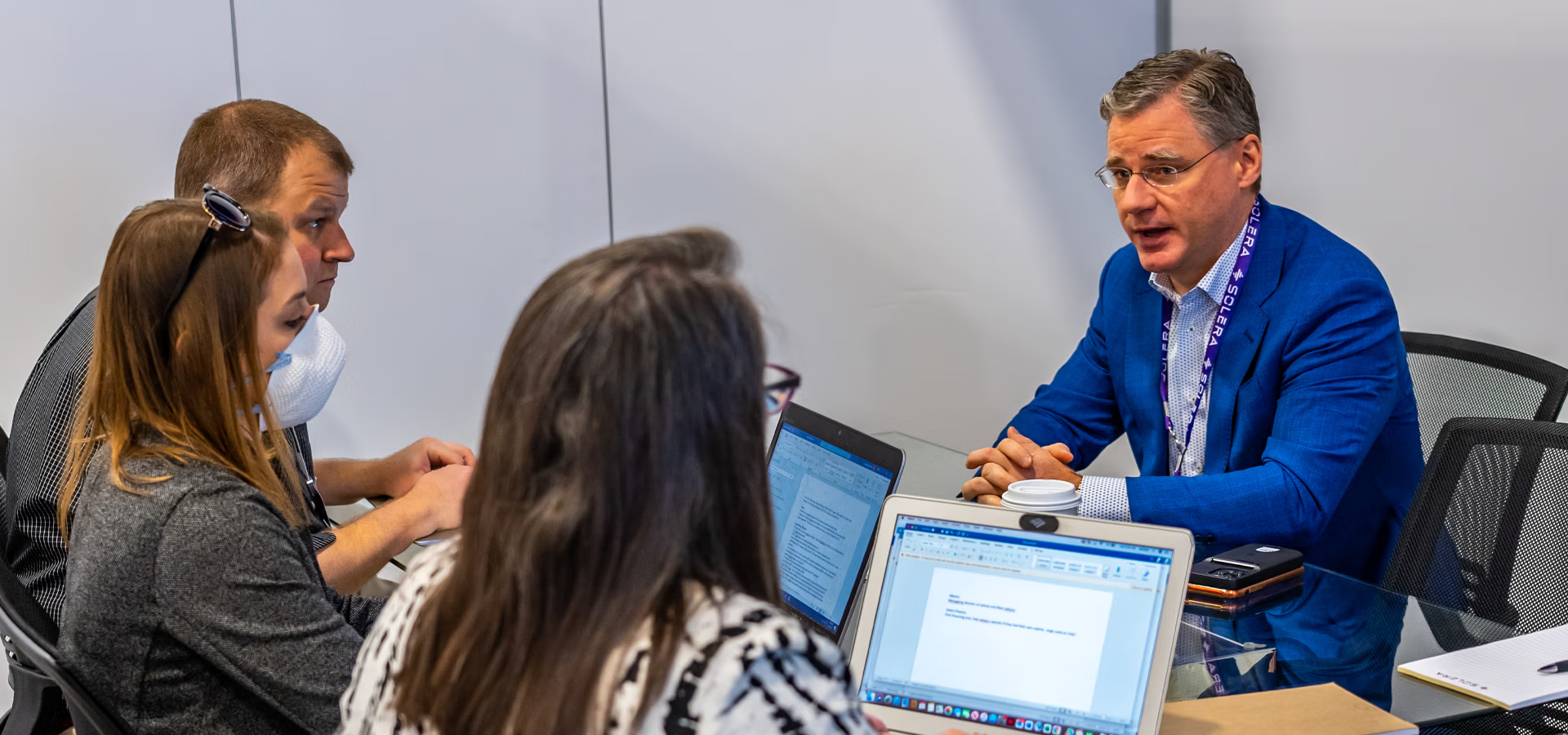Trade show logistics is the process of storing, coordinating, and transporting your exhibit, products, and promotional items to and from their destination as required.
When you think of words like ‘logistics’ or ‘planning’, you might picture:
- Endless meetings
- Hours upon hours of phone calls
- Fees eating away at your show budget
- Having to handle about a million things at once
- Making crucial last-minute decisions you don’t feel qualified to make
While this can be a reality for trade show exhibitors all over the world, it doesn’t have to be the reality for you.
Our article explains how trade show logistics and planning can be slick and streamlined rather than tedious and time-consuming.
Common logistical challenges when planning for a trade show
Understanding the nuances of each venue is undoubtedly the biggest challenge when preparing for a trade show.
Working alongside a trade show partner that doesn’t take these nuances into account could be disastrous.
You could end up essentially trying to fit a square peg in a round hole and feel like you’ve been shown up in front of your competitors.
For example, if all of your events are in ballrooms and you have a chandelier in the middle of your booth space, you probably shouldn't have a hanging sign right in the middle of your booth. Otherwise, the messaging gets completely lost and you’ve just wasted hours of your time and huge sums of money.
This real-life scenario is the consequence of poor planning on the part of the exhibit house and a lack of thought to venue layout.
We know that every venue is different. At one venue, you may need to get your electrical from a third party. At the other, you may be able to get it directly from the venue.
Venue functionality may change, too, which could impact the type of experience you’re able to create.
Take the Las Vegas Convention Center. The venue recently added another hall, which functions differently from the last two halls. This is an important development that exhibitors like you need to know about if you’re planning to attend an event there.
If you come to us and say, ‘We're going to go to the Vegas Convention Center,’ our next question will be, ‘Which hall are you in?’ because we know important follow-up questions need to be asked.
The best exhibit houses are aware of these potential outliers, quick on their feet, and able to find a solution that puts the client in the best position on-site.
Key pointers to remember when planning for a trade show
There are a few things you should keep in mind to make the logistics and planning process as smooth as possible.
1. Think about the entire show
You need to consider everything you’ll need when you’re on the trade show floor, even the things that may not seem obvious. For example, scissors, a care kit box, band-aids in case of an emergency, and chairs.
We often ask clients, ‘Does every person in your booth need a chair, or do you want your staff to be standing there?’
In addition to these details, you also need to think more broadly about what you’re trying to achieve at the show.
What first impression do you want to convey? What’s your ultimate objective for being at the trade show? Are you trying to sell something? Are you trying to create relationships? Do you need to schedule meetings?
These questions are super important to ask yourself when planning your event.
2. Consider the full range of costs involved
Although we’re here to help you streamline your trade show costs, you’re going to incur certain charges irrespective of whether we're involved or not.
Chipotle is going to charge you for the guacamole you ask for. You’re going to have to factor in the cost of insurance.
Not everyone will take these expenses into account before planning their next event, which is where we come in as a strategic partner. We’ll work backwards and break down all of the standard costs you can expect to pay and the budget you’ll have left to allocate to our services once these costs have been deducted.
3. Take show location into consideration
It’s worth remembering costs can vary by city. Seattle and Chicago tend to be very expensive; Atlanta and Indianapolis, less so.
Some cities are more unionized than others, meaning they'll charge double time for after-hours work versus other cities that just charge overtime.
To get a truck into New York, you’re going to pay a substantial amount per mile just to get that truck into the city because it’s so hard to get into.
How far ahead should trade show exhibitors plan?
To maximize impact, you should let your exhibit house know about a show you’re planning to attend six months in advance.
By working to this timeframe, they’ll be in a great position three months out from your event. They’ll know exactly what they're trying to execute, they’ll have a design, and they’ll have a clear plan, and then it's just a matter of executing that plan.
Last-minute requests can be accommodated, but there are certain implications that come along with such requests. If you approach us within a 30-to-45-day window of your next show, priority fees typically kick in at this point. These fees reflect the scope of work required and our capacity to fulfill your request.
This is not to say we can't help somebody outside of this window. We can, but at least six months’ advance notice is the optimum timeframe.
Most of our clients buy the booth space for their next big event before they even leave the show the previous year.
However, if we reuse something the client already owns, the lead time is shorter than if we have to design and build something from scratch.
Handling trade show logistics and planning yourself
Should you choose to order your own TV or furniture for the show, there’s a discount deadline incentive you can take advantage of.
If you place your order before a certain date, you can receive better rates for the show in which you’re exhibiting. It can sometimes be 25 to 30% more expensive if you order after this date.
Plus, there’s no guarantee the furniture you want will still be available if you order after the discount deadline, as the contractor may have sent trucks of furniture to the show already.
That’s why you should work to the discount deadline if you handle the logistics and planning yourself.
This incentive makes it easier for the general contractor to meet all of the client’s needs, as they can see them further out. They can plan how many TVs should go in the booth, they can plan how much furniture is needed, and so on and so forth.
If you also want to arrange your own shipping, you should ship to the advanced warehouse. This is a warehouse that acts as a storage and distribution center for businesses participating in trade shows and events. The benefit of sending things to the advanced warehouse is you don't have to wait for other exhibitors to be offloaded (as there's a large fee for the waiting time).
How to make your life easier
If you can think of a hundred things you’d rather do than handle the above:
1. We don’t blame you. These jobs are not for the faint of heart.
2. Good news—you can leave it to us.
We can handle these foundational five services on your behalf:
- I&D (Installation & Dismantle)
- Material handling
- Shipping
- Electrical
- Flooring
Some of our clients have handled logistics and planning one time, realized they're the ones receiving all the phone calls from the driver trying to offload their booth, and decided they don’t want to go through this again.
That’s why we’re here.
We want your sole focus to be on making sure you’re well-staffed at the event, the emphasis of the show is being accomplished, and you’re ready to showcase your product—not whether or not your TVs are plugged in. This is for us to focus on.
What credentials does The Trade Group have?
We’ve been established as a strategic trade show partner since 1986.
All those years of trial and error, all the different types of clients we've worked with, and all the big projects we've managed have given us the foresight and knowledge to manage your event as smoothly as possible.
You’ll be able to keep up with the ever-changing landscape that is the trade show world thanks to our innate understanding of the industry and wide network of contacts.
Whether it’s union restrictions or the addition of another hall at your event venue, we’ll anticipate those changes well ahead of time and help you prepare as best you can.

Case study
Abbey Schmahl, Client Services Director at The Trade Group:
“When I'm training staff, I tell them to always hear the request. I don’t think I’ve ever said, ‘I’m sorry, we cannot help you.’ If we’re not sure, we’ll assess the situation, see what our options are, and find a solution.
We recently shipped something to Mexico that got caught up in customs and couldn’t cross the border. It turned out the clients included some mints in their shipment, and this became a food-related issue.
I couldn't get it cleared, but with the help of one of our partners, we got a new banner stand and drape produced in Mexico so that the client didn’t have a blank booth space.
I sent a message out to all of the managers and fellow directors asking if anyone local could help us. Sure enough, somebody replied and said, ‘I used this vendor three months ago, and they were great to work with. Try them first.’
That vendor ended up coming through for us.
Although it wasn’t the exact booth the client had originally ordered, they were really happy that we managed to rectify the situation and didn’t leave them high and dry.
This story is a testament to the partnerships, experience, and knowledge within The Trade Group.”
What happens after we design and build your booth?
When we work with you for the first time, we focus not just on the build and fabrication of your booth but also on what will happen to it before, during, and after your event.
We’ll ask important questions like:
- Is it going directly to one show?
- Are you going to store the assets with us?
- Are certain services going to be required at the show site?
- Where is it going after the show? Is it going to your warehouse to store indefinitely, or is it coming back to our facility for us to store it?
We always take a long-term view of each project, and we can provide as much or as little support as you need.
What is our Exhibit Management Program?
https://youtu.be/TFH1KmbOKhQ
Once we've taken care of the initial build for you, our work doesn't stop there. We can save you a considerable amount of time preparing for your future shows by enrolling you in our Exhibit Management Program.
This program is beneficial to exhibitors in multiple ways.
For example, if you have shows two and three less than a month apart and plan to take the same booth to each show, you can save money by arranging for your booth to be shipped from show to show. We can arrange for your booth to be transported from Atlanta to Los Angeles, or wherever it may be, to make the logistical process as cost-effective as possible.
This arrangement is also considerably less of a logistical headache for you versus if your booth comes back to a warehouse each time and then has to go back out again.
By enrolling in this program, our clients trust us to manage all of their events. Their inventory is stored in our building, so if they decide to go to a show one month from now, we have their inventory, and our team can pull, stage, and prepare it.
You'll receive photos of everything, and your assets will be show-ready before leaving the facility so that everything goes swimmingly once they’re on the trade show floor.
If anything happens to get damaged, it will be repaired at the earliest opportunity so that each time your booth is dispatched for the next show, it’s as if it’s going out for the first time.
This program reaffirms our commitment to going above and beyond for you. We’re not just the order taker—we’re giving you added long-term value.
Plan your next trade show with us today
As a strategic trade show partner, we’re here to bring your business’s story to life—and make your life easier in the process.
By teaming up with us, you’ll save yourself time, stress, and money when planning your next show.
We can accommodate last-minute requests such as additional AV or TVs, furniture, and specific internet and electrical needs.
Every day after 5pm, our main line is directed to an on-call account manager or a project manager. You can speak to them any time of day, seven days a week, to discuss any urgent requests you may have.
In the most urgent cases, we’ll contact our local I&D (Installation & Dismantle) team, who will handle your request carefully and efficiently.
Whatever your requirements, we’ll endeavor to dot the I’s and cross the T’s so that everything runs as smoothly as possible.
With our help, you'll spend less time rushing around and worrying about the transportation of your exhibit materials and more time developing a strategy for engaging with attendees.
If you’re interested in partnering with us for your next event, send us a note here or give us a call at 800-343-2005.

